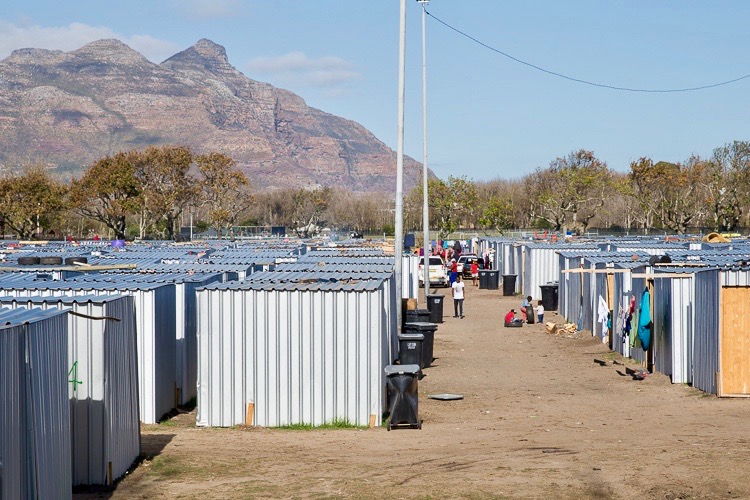
19 June 2024

Temporary housing for Imizamo Yethu residents in Cape Town while they were awaiting reblocking in 2018. Archive photo: Ashraf Hendricks
Informal settlements are set to remain a part of the South African urban landscape for the foreseeable future. The demand for housing continues to far outstrip the number of houses the state provides. Policy direction remains vague.
At the municipal level, officials trying to upgrade informal settlements struggle with red tape and conflicting policy directives. Progress is slow. New ideas and approaches are needed at every level. One possible lever for change could be through engaging the Expanded Public Works Programme (EPWP).
The EPWP, originally called the National Public Works Programme, was launched in 1998. In 2004, it was relaunched and scaled up as the EPWP. A response to high levels of unemployment and poverty, it has provided a meagre income and short-term, low skill employment to millions of people. In recent years some efforts have been made to provide higher level skills and pathways to longer term employment, but this has been patchy.
The working for fire and water programmes are good examples of what can be done. Similarly, there is potential for EPWP workers to contribute to upgrading informal settlements.
Municipalities have been weak at establishing formal, representative community structures in advance of upgrades, or liaising and informing these bodies accurately about the upgrade plans. Other areas of weakness include mapping, numbering, and enumerating structures; registering new arrivals, departures and demolitions; and negotiating the reconfiguring of settlements to allow space for infrastructure like roads. Municipalities also struggle to unblock stalled projects, to negotiate the installation, management and maintenance of alternative infrastructure (such as solar lighting), and to keep tabs on maintenance of taps, toilets and other services.
Supported by civil society, EPWP workers, who come from the informal communities themselves, could fulfil many of these functions. This would also create a people-centred approach which is missing from current state efforts.
With intimate local knowledge and longstanding networks they would be well placed to broker the type of complex relationships that are required for in-situ informal settlement upgrading.
This would also help rebuild strained relations between informal communities and their municipalities.
The approach has already been trialled with some success under the Informal Settlements Support Programme (ISSP) where EPWP workers in Villiersdorp, Western Cape, were trained to number, map and enumerate over 4,000 structures.
Changes would need to be made to the way the EPWP works to allow for longer employment periods (currently the limit is six months) and pathways would have to be created to move workers into roles within municipal human settlement departments after their stint. This would also help the EPWP to achieve its stated goal to provide long-term skills and employability.
Such a programme could help where housing and upgrading projects are stuck for years because of a lack of capacity or local political dynamics. In these cases, project-specific funding could be diverted to the EPWP as an emergency measure to “unblock” stalled projects instead of returning unspent funds to Treasury.
The EPWP provides a unique opportunity for the state to experiment with a new approach to human settlement. Small-scale pilots, supported by NGOs, can be initiated, replicated, and scaled up. There is no reason why this cannot start immediately – it is an important opportunity that should not be missed.
Views expressed are not necessarily those of GroundUp.